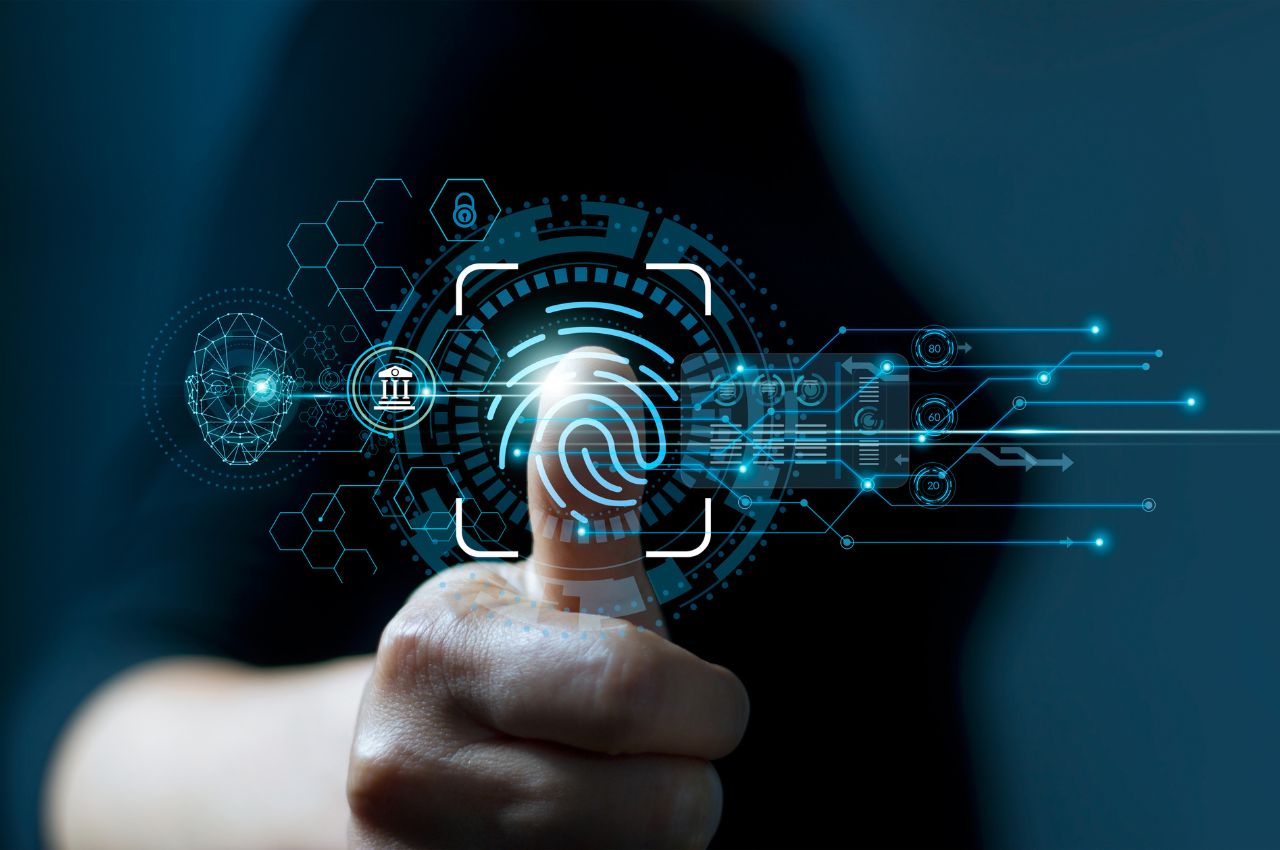As criminals become more sophisticated, the limitations of conventional ID checks become increasingly apparent, putting both guests and property at risk. This scenario underscores the urgent need for more reliable and advanced verification methods, leading to the exploration of biometric ID verification as a cornerstone of modern hotel security strategies.
Understanding Hotel ID Verification
Hotel ID verification serves as a critical checkpoint in ensuring that guests are who they claim to be. This process not only protects the hotel from potential fraud but also safeguards guests by preventing unauthorised access to rooms and services. Traditionally, this verification has relied on manual checks of government-issued IDs or passports. However, these methods are prone to human error and can be easily circumvented by determined fraudsters, highlighting the need for more foolproof solutions.
The Shift to Biometric ID Verification
The integration of biometric ID verification represents a paradigm shift in how hotels approach guest security. Unlike traditional methods that depend on physical documents, biometric verification uses unique biological traits, such as fingerprints, facial recognition, and iris scans, to confirm identity. This approach offers a higher level of security, as biometric data is inherently difficult to forge or steal. Moreover, biometric verification streamlines the check-in process, enhancing guest convenience while bolstering security measures.
The hotel industry is increasingly adopting biometric ID verification to enhance security and streamline operations. Innovatrics, a Slovakia-based biometric solutions provider, has developed a digital onboarding toolkit for contactless hotel check-ins. This system allows for quick verification of guest identity using a scan of an identity document, significantly reducing check-in times to less than a minute.
How Do You Verify Guest Identity in a Hotel?

Verifying guest identity in a hotel setting involves several key steps, traditionally encompassing the collection and inspection of government-issued ID documents. However, this process can be labour-intensive and prone to inaccuracies. With the advent of biometric verification, hotels can now simplify and secure this process. Guests can be swiftly verified through biometric scanners that match their biometric data with pre-verified information, reducing the need for manual document checks. This method not only accelerates the check-in procedure but also significantly lowers the risk of identity fraud, creating a safer environment for both guests and hotel staff.
Adopting biometric ID verification brings a host of benefits to the hotel industry, notably enhancing security and fraud prevention. By leveraging unique physical characteristics for identification, hotels significantly reduce the risk of identity theft and unauthorised access, ensuring that only verified guests can make transactions or enter premises. This level of security fosters a safer environment, contributing to a sense of trust and well-being among guests.
Moreover, biometric verification streamlines the check-in process, eliminating the need for guests to present and verify documents manually. This not only speeds up the procedure, making it more efficient but also improves the overall guest experience by minimising wait times and reducing friction upon arrival. The convenience of biometric verification, coupled with its enhanced security features, positions it as an invaluable tool for modern hotel operations.
Hotel ID Verification App: A Technological Solution
The development of hotel ID verification apps that incorporate biometric technology represents a significant leap forward in guest verification. These apps offer a convenient platform for guests to submit their biometric data securely before arrival, allowing for a seamless check-in process. Features of an effective hotel ID verification app include secure data encryption, user-friendly interface, and integration with hotel management systems for real-time verification.
Such apps not only expedite the check-in process but also provide a secure repository for biometric data, ensuring that guest information is protected against unauthorised access. The adoption of hotel ID verification apps demonstrates the industry’s commitment to leveraging technology to enhance security and guest satisfaction.
Privacy and Data Security Considerations
While biometric ID verification offers numerous advantages, it also raises important considerations regarding privacy and data security. The collection and storage of biometric data must comply with stringent regulations to protect guest privacy and ensure data integrity. Hotels adopting biometric verification must implement robust security measures, including data encryption and secure storage solutions, to prevent data breaches and unauthorised access.
Transparency with guests about how their biometric data will be used, stored, and protected is crucial in building trust and ensuring compliance with privacy laws. Hotels must also provide guests with options and obtain explicit consent for the use of their biometric data, ensuring that privacy concerns are addressed and respected.
Implementing Biometric Verification: A Step-by-Step Guide
For hotels looking to implement biometric ID verification, a structured approach is essential for successful integration. The first step involves selecting the right biometric technology that suits the hotel’s specific needs and guest expectations. Factors to consider include the type of biometric data to be used, the scalability of the solution, and compatibility with existing hotel management systems.
Once a technology solution is chosen, the next step is to integrate the biometric verification system into the hotel’s operational workflow. This may involve hardware installation for biometric scanners and software integration for data processing and storage. Training staff on the new system is crucial to ensure they are equipped to manage the technology and address any guest inquiries confidently.
Ongoing evaluation and updates to the biometric system are necessary to adapt to technological advancements and emerging security threats. Regular training sessions for staff and updates to guests about any changes in the verification process help maintain the system’s effectiveness and guest satisfaction.
The integration of biometric ID verification into hotel operations marks a significant advancement in enhancing security and guest experience. As the hospitality industry continues to evolve, the adoption of such technologies will play a crucial role in meeting the expectations of modern travellers for safe, efficient, and personalised service. Embracing biometric verification not only elevates hotel security but also positions properties as forward-thinking leaders in guest service innovation.
Overcoming Challenges in Biometric ID Verification
Overcoming challenges in biometric ID verification is paramount for hotels aiming to perfect this technology’s integration into their guest verification processes. Technical hurdles, such as ensuring the accuracy of biometric scanners and dealing with variations in biometric data due to age, injury, or wear, require continuous technological refinement and adaptation. Additionally, addressing guest concerns about privacy and data security is crucial. Implementing transparent policies and robust data protection measures reassures guests that their information is safe and their privacy respected.
The Future of ID Verification in Hotels
The trajectory of ID verification in the hotel industry points towards increasingly sophisticated biometric solutions. Future advancements may include multimodal biometrics, combining several types of biometric verification to enhance accuracy and security further. Integration with other technologies, such as artificial intelligence and blockchain, could offer additional layers of security and efficiency, revolutionising how hotels verify guest identities and manage data.
As biometric technology evolves, so too will the strategies for its implementation in guest verification. Hotels that stay abreast of these advancements and adapt their operations accordingly will be well-positioned to lead in hospitality security and guest service excellence.
Conclusion
The necessity of biometric ID verification in elevating hotel security cannot be understated. By harnessing the power of biometric technology, hotels can offer more secure, efficient, and personalised guest experiences. As the industry moves forward, embracing these advancements will be crucial in maintaining trust, ensuring safety, and staying competitive. Now is the time for hoteliers to invest in biometric ID verification technologies, paving the way for a future where guest security and satisfaction go hand in hand. Embrace the change, and set new standards in hospitality excellence.
